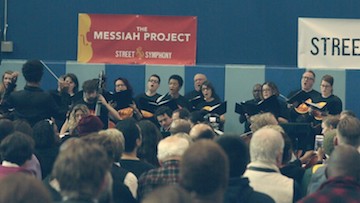 New lessons are released the first day of each month.
New lessons are released the first day of each month.
Here are a few of the new lessons available for January 2017.
To listen to these and other Daily English and Cultural English lessons, become a Select English Member today!
………
Daily English 1276 – Using an On-site Daycare
In the Learning Guide: Get a full transcript (written version of every word you hear), vocabulary list and sample sentences, and comprehension questions.
In “What Else Does it Mean,” learn the other meanings of “to pop over” and “to keep it short.”
In the “Culture Note,” learn about “Things to Consider When Considering a Daycare Facility.”
“Many new parents are ‘nervous’ (anxious and worried) about leaving their children in a daycare facility…” – READ MORE in the Learning Guide
…
Cultural English 589
Topics: Famous Americans – Kenny Rogers; Elements of Style; over time; pronouncing “rushing” versus “Russian”
In the Learning Guide: Get a full transcript (written version of every word you hear).
In “What Insiders Know,” you will read about “Gamblers Anonymous.”
“People who have a ‘gambling’ addiction are ‘driven to’ (feel that they must act in a particular way) risk large amounts…” – READ MORE in the Learning Guide
…
Daily English 1277 – Inconsiderate Subway-Train Passengers
In the Learning Guide: Get a full transcript (written version of every word you hear), vocabulary list and sample sentences, and comprehension questions.
In “What Else Does it Mean,” learn the other meanings of “to hog” and “pole.”
In the “Culture Note,” learn about “Common Subway Rules and Prohibitions.”
“Many large ‘metropolitan’ (city) areas have subways, but ‘commuters’ (people who travel to and from work) have to agree to follow rules…” – READ MORE in the Learning Guide
 When I see them, I often save articles that describe good people doing good things. Here are two of my favorites from 2016.
When I see them, I often save articles that describe good people doing good things. Here are two of my favorites from 2016.

 A Christmas tradition was born in Dublin, Ireland, almost 275 years ago.
A Christmas tradition was born in Dublin, Ireland, almost 275 years ago. Hello, everybody! Today, I’m going to talk about a phrase you might hear in conversation, one that sounds just a little bit strange.
Hello, everybody! Today, I’m going to talk about a phrase you might hear in conversation, one that sounds just a little bit strange.